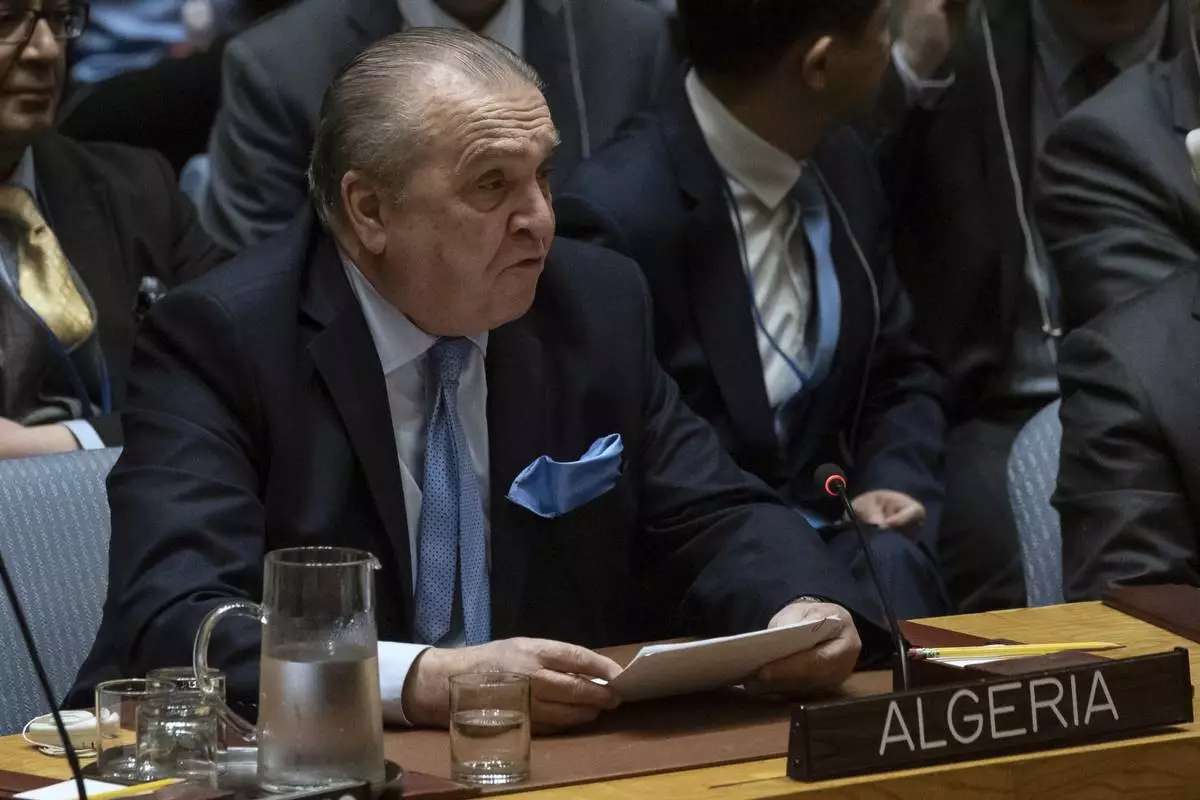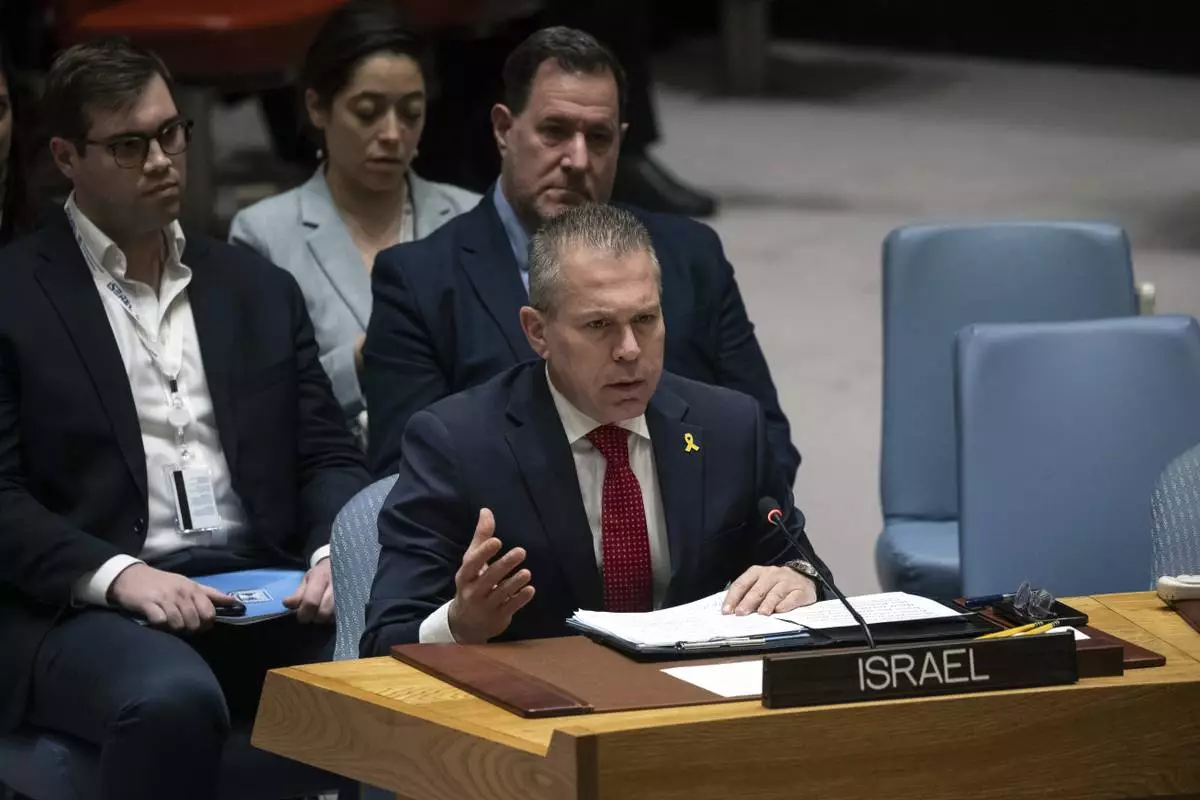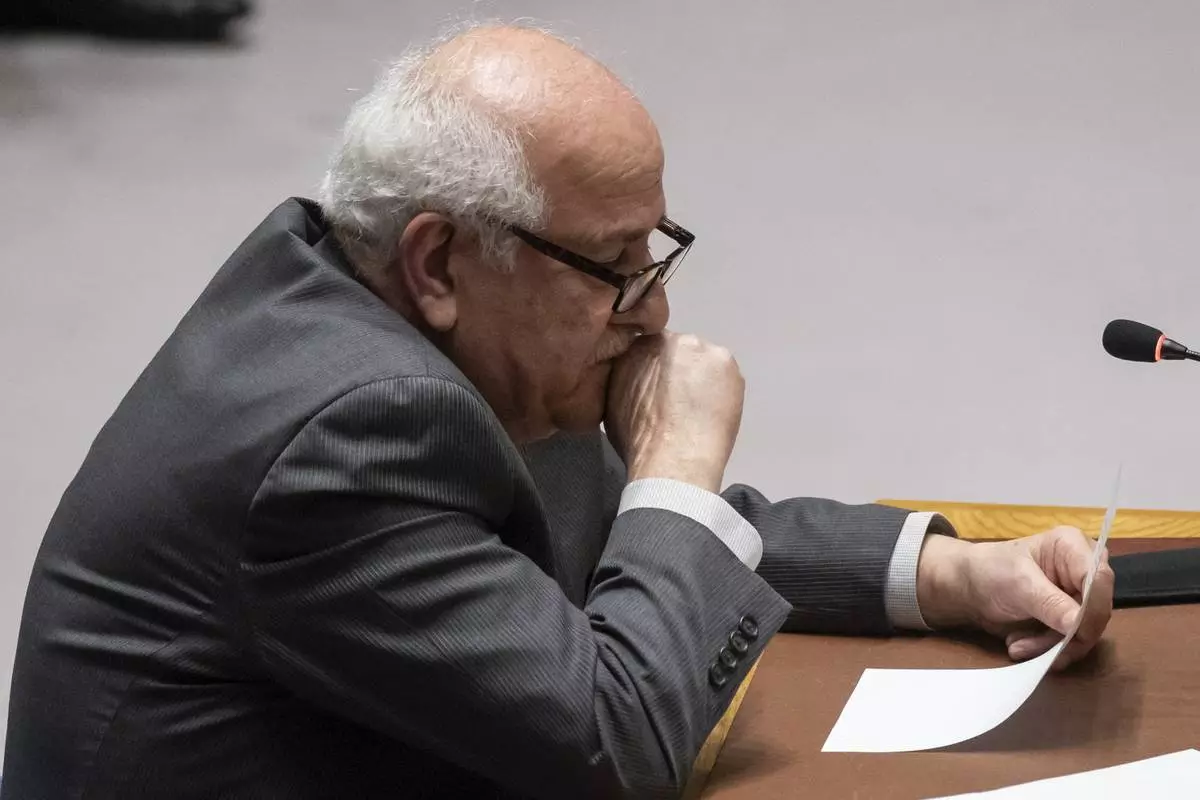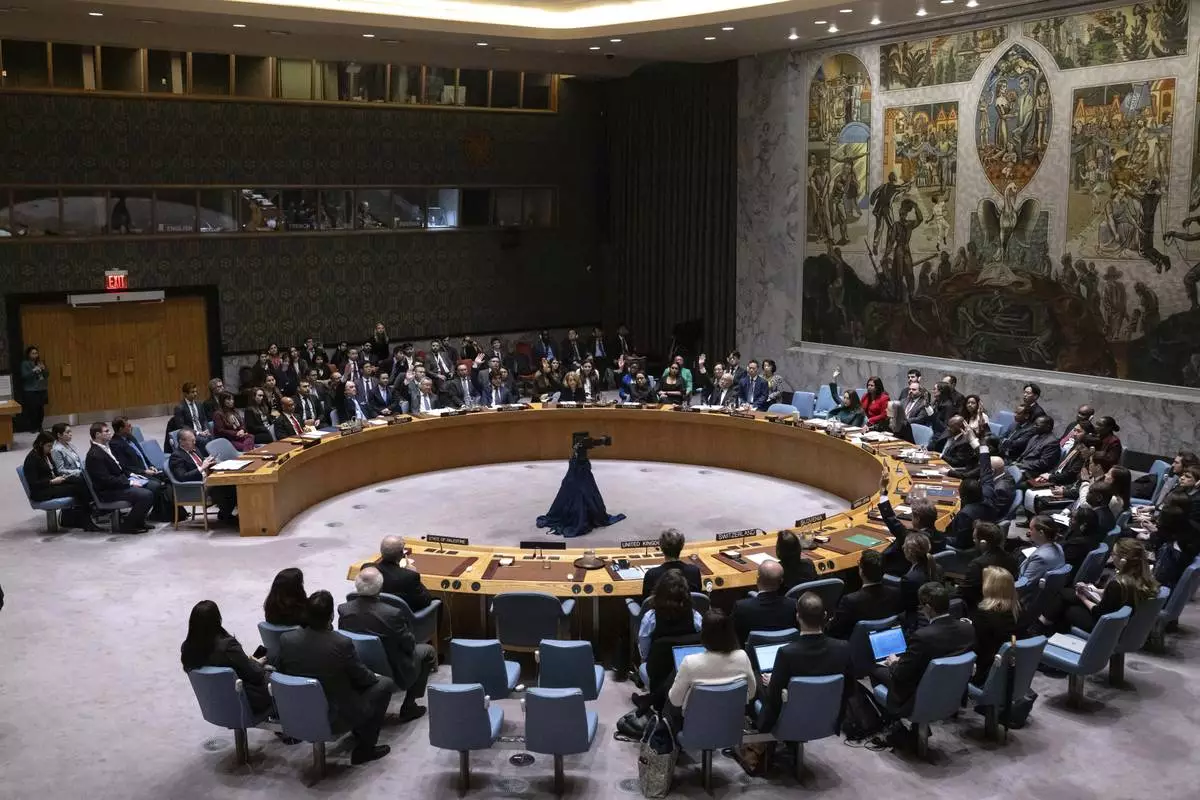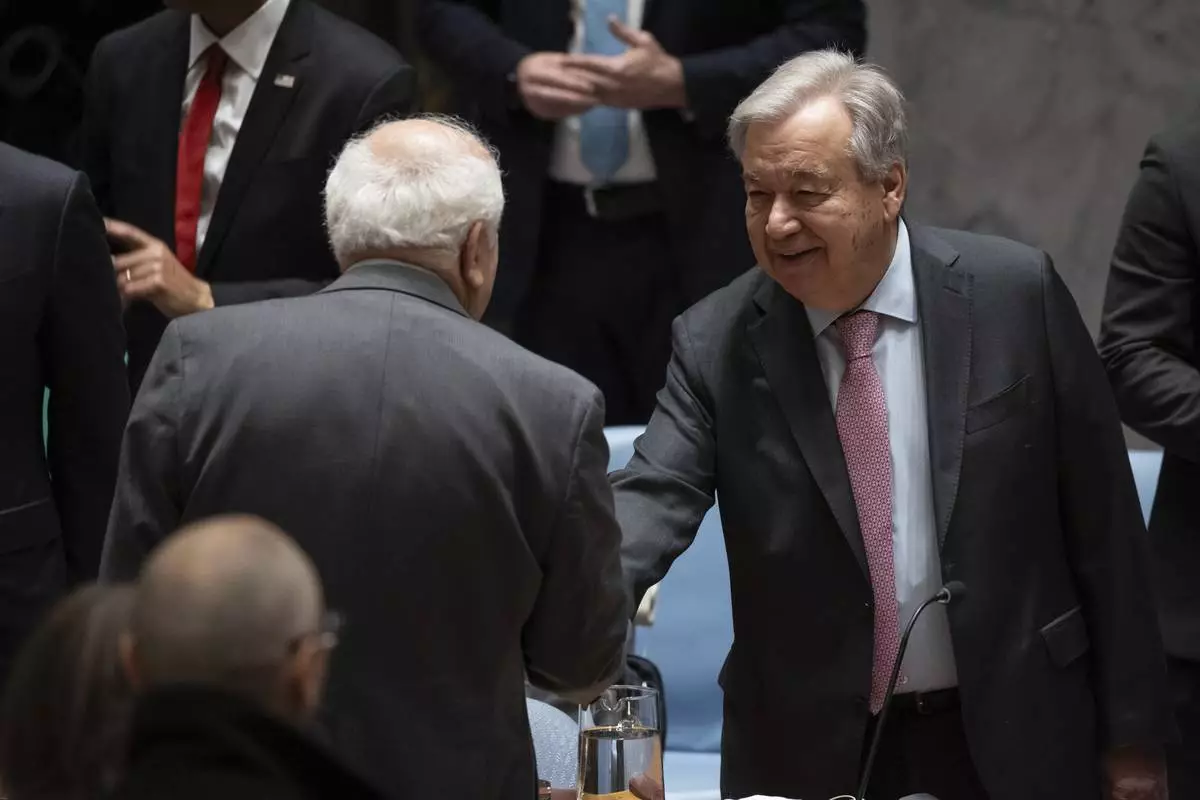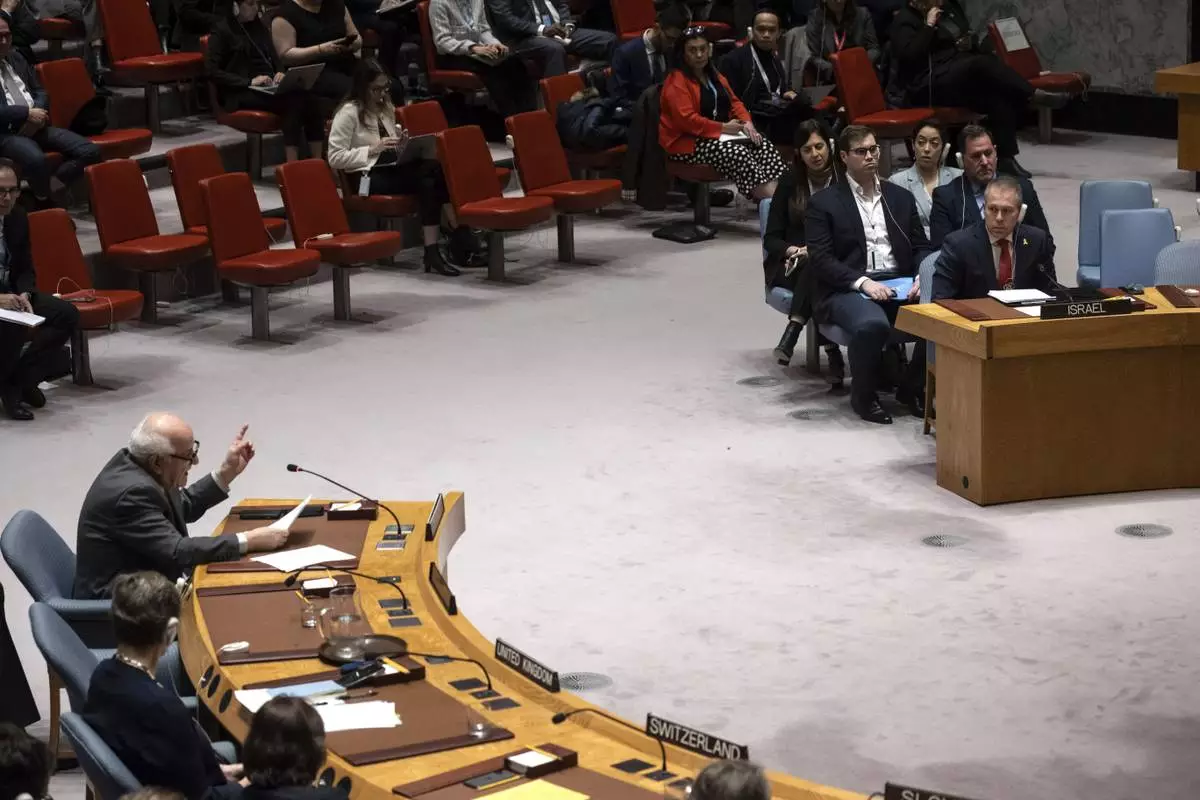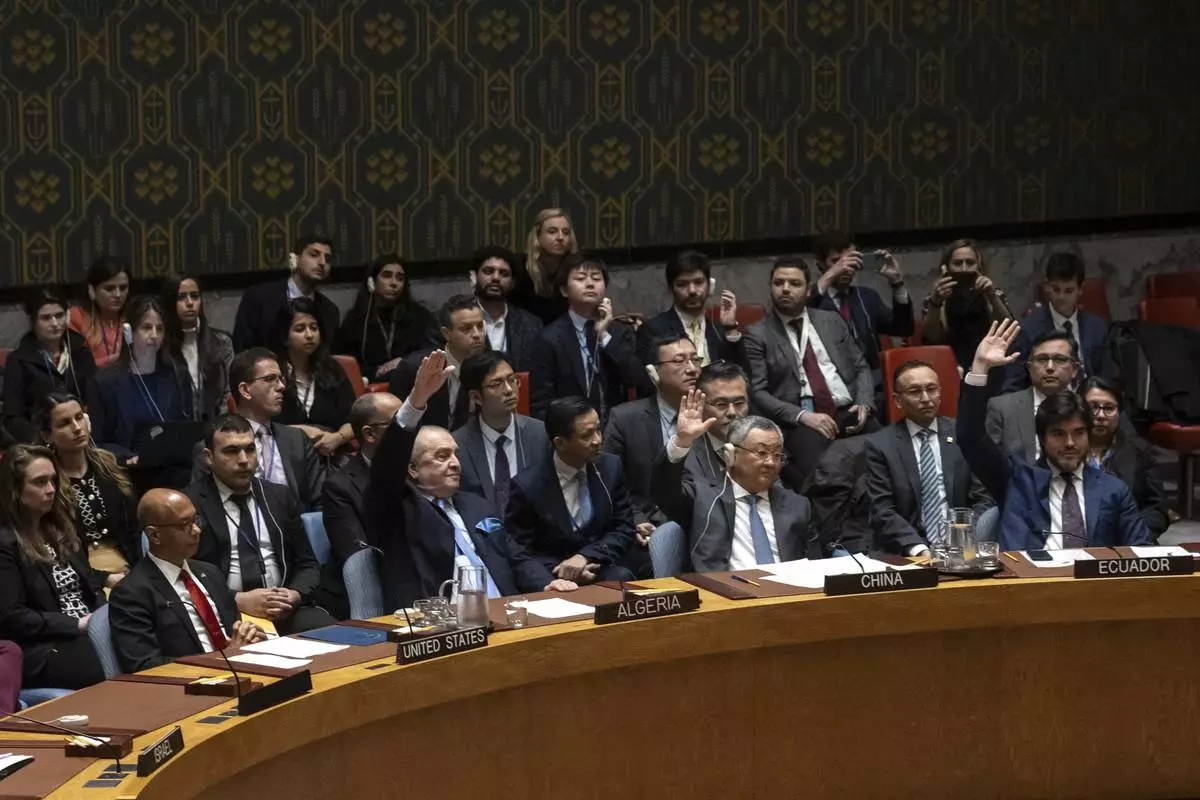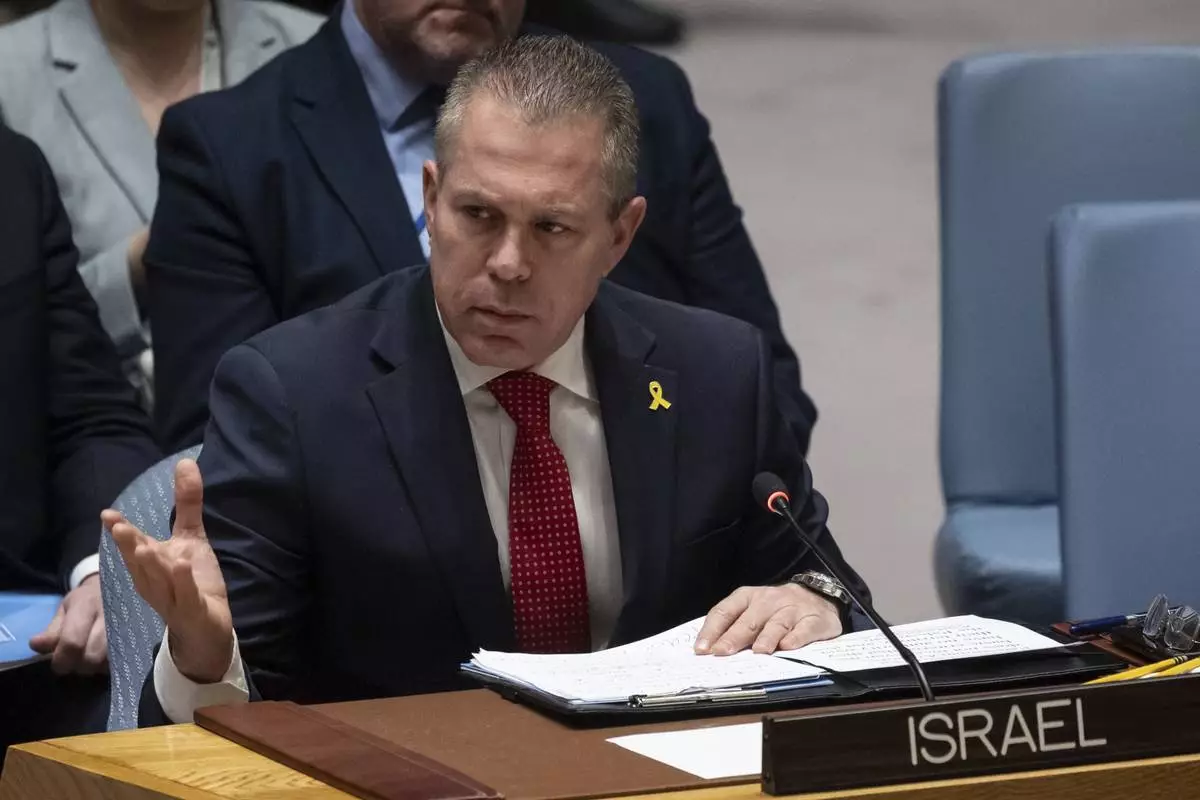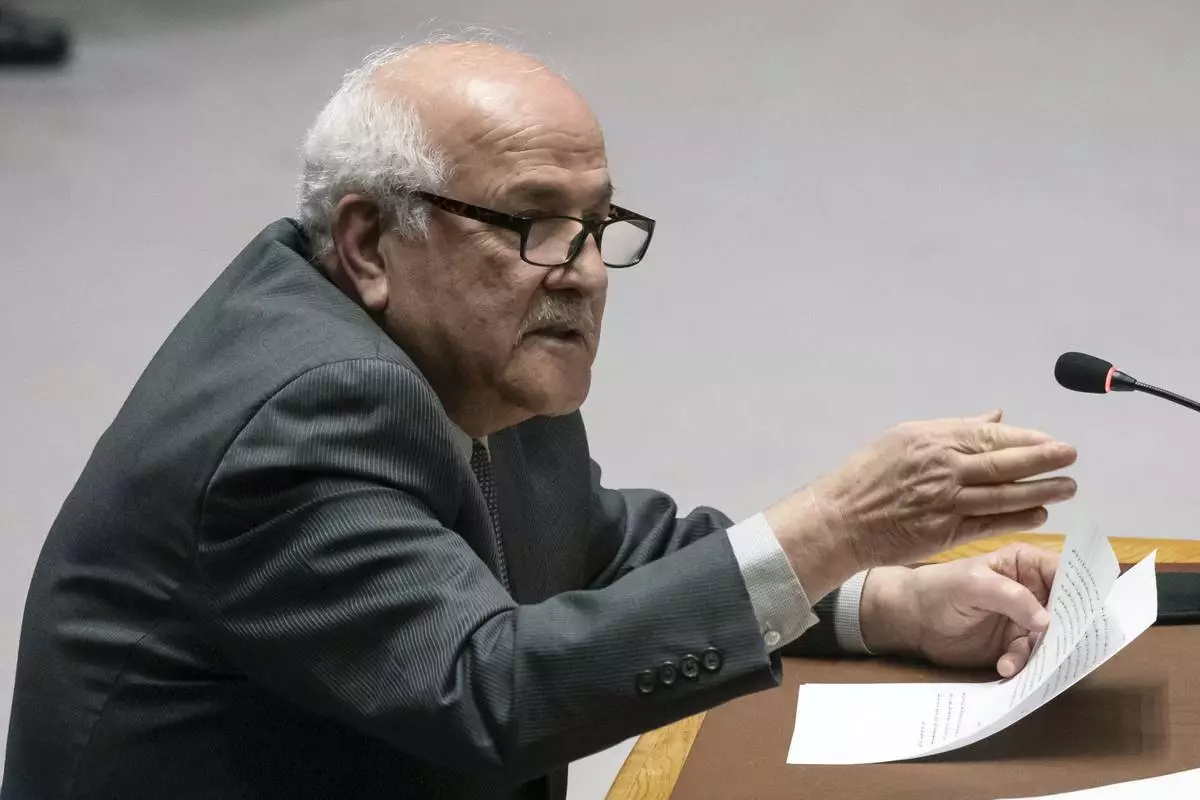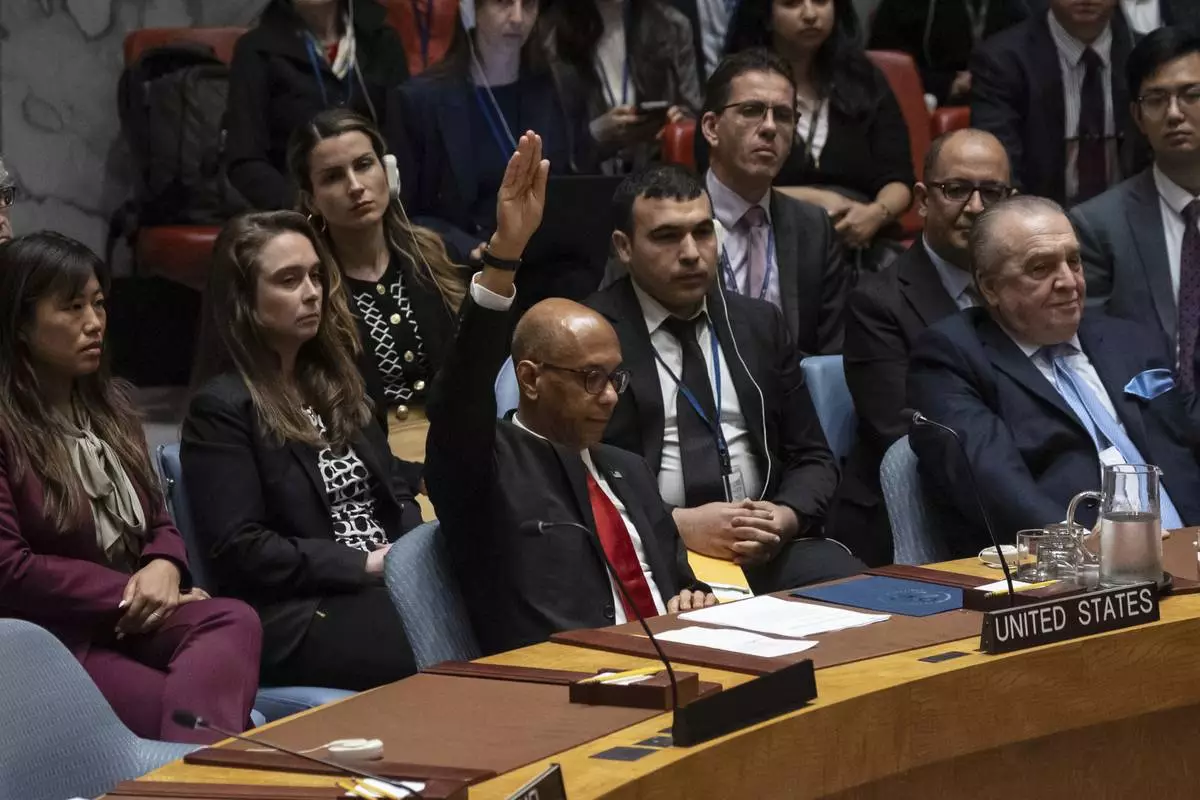A police cruiser constantly sits a few feet from a small floral memorial to Eric Garner on the Staten Island sidewalk where he spent his dying moments five years ago.
Tompkinsville Park, which police were targeting for patrols when they encountered Garner selling loose, untaxed cigarettes, remains a gathering place for desperate people.
Expletives flew on a recent hot afternoon as park regulars discussed everything from drugs and mental illness to jail conditions and the bail paid so they could sit on a park bench. It was the day after Police Commissioner James O'Neill announced his decision to fire the white officer who put Garner in a chokehold, hastening his death and making the man's dying words, "I can't breathe," a rallying cry for the Black Lives Matter movement.
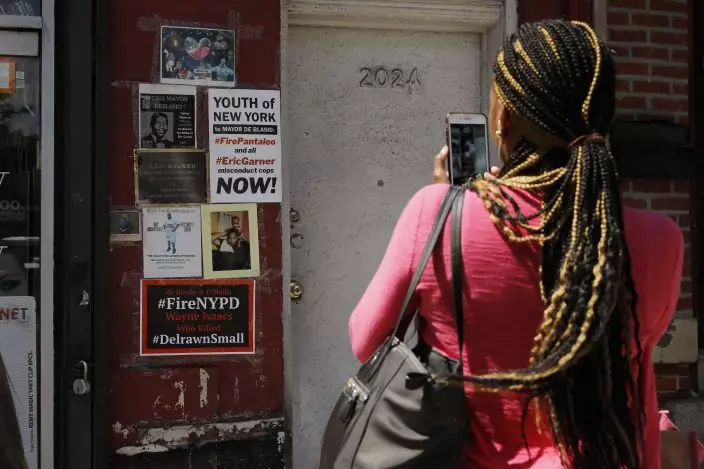
A woman stops to photograph the make-shift memorial, Tuesday, Aug. 20, 2019, where Eric Garner died in a police chokehold, in the Staten Island borough of New York. After five years of investigations and protests, the New York City Police Department on Monday fired Officer Daniel Pantaleo, who was involved in the 2014 chokehold death of Garner, the black man whose dying gasps of "I can't breathe" gave voice to a national debate over race and police use of force. (AP PhotoRichard Drew)
"If the police are here, they just move to the other side of the park and do their business there," said longtime resident Lisa Soto, taking a long drag from a cigarette. "They sell everything here. Nothing has changed."
That may be, some residents say, because police officers are now much more careful about how they interact with the public — more cautious when dealing with suspects and less likely to bother with the kind of nuisance enforcement that was a priority five years ago.
"When you give a lot of leeway like that, the place becomes lawless," said resident Doug Brinson. "It's been lawless for five years. Five years people do what they want to do on this block. Five years straight."
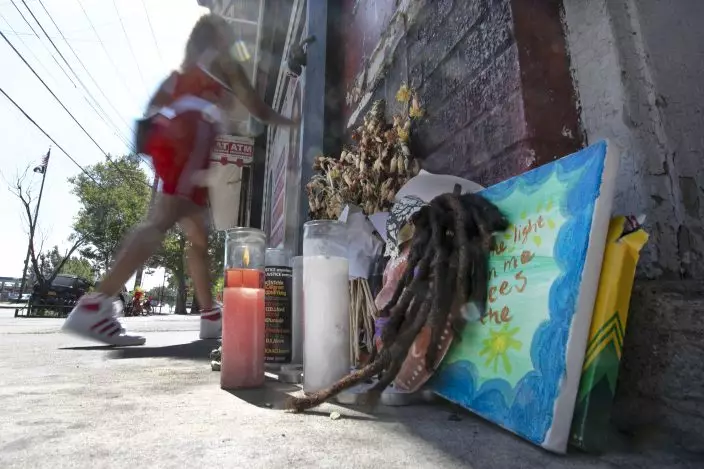
A woman passes a make-shift memorial to Eric Garner, Tuesday, Aug. 20, 2019, where he died from a police department chokehold, in the Staten Island borough of New York. After five years of investigations and protests, the New York City Police Department on Monday fired Officer Daniel Pantaleo, who was involved in the 2014 chokehold death of Garner, the black man whose dying gasps of "I can't breathe" gave voice to a national debate over race and police use of force. (AP PhotoRichard Drew)
Bert Bernan, a former construction worker on disability, said respect for the police has plummeted and he sees crime as having risen in the neighborhood where he grew up in the 1960s.
"I remember, me and my friends, if we were goofing off on the corner and the cop waved a nightstick at you, you knew, get the hell off the corner and don't give him any lip," Bernan said. "Back then, you didn't have hoodlums hanging out on street corners; what we have here is a disgrace."
Garner's death five summers ago was an inflection point for the New York Police Department. Caught on video, the fatal encounter between Garner, a black man, and Officer Daniel Pantaleo led the nation's largest police force to train officers to de-escalate confrontations and to reassess how interact with the public.
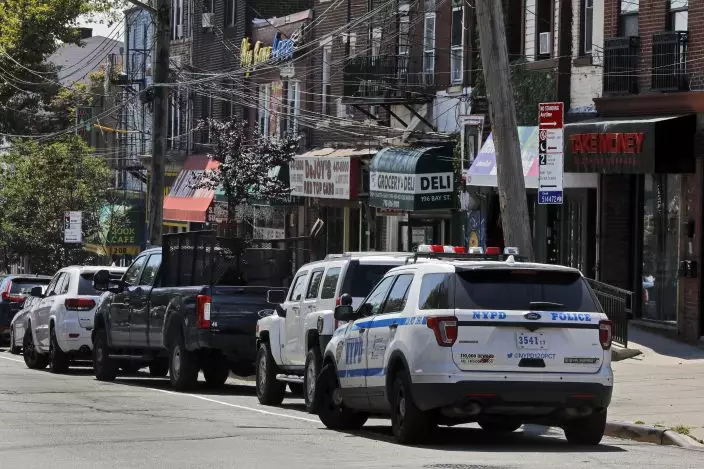
A New York City Police Dept. officer sits in his car at the head of the block, Tuesday, Aug. 20, 2019, where Eric Garner died from a police chokehold five years ago, in the Staten Island borough of New York. After five years of investigations and protests, the New York City Police Department on Monday fired Officer Daniel Pantaleo, who was involved in the 2014 chokehold death of Garner, the black man whose dying gasps of "I can't breathe" gave voice to a national debate over race and police use of force. (AP PhotoRichard Drew)
A bystander's cellphone video showed Pantaleo wrapping his arm around Garner's neck and taking him to the ground with a banned chokehold near where the Staten Island Ferry takes commuters and tourists to and from Manhattan.
After Garner's death, the police department required all 36,000 officers to undergo three days of training, including classes focused on de-escalation. Last year, it began training officers on fair and impartial policing, teaching them to recognize biases and rely on facts, not racial stereotypes.
In March, it finished outfitting all patrol officers with body cameras. And the department now requires officers to detail the actions they took each time they used force — not just when they fired their gun.
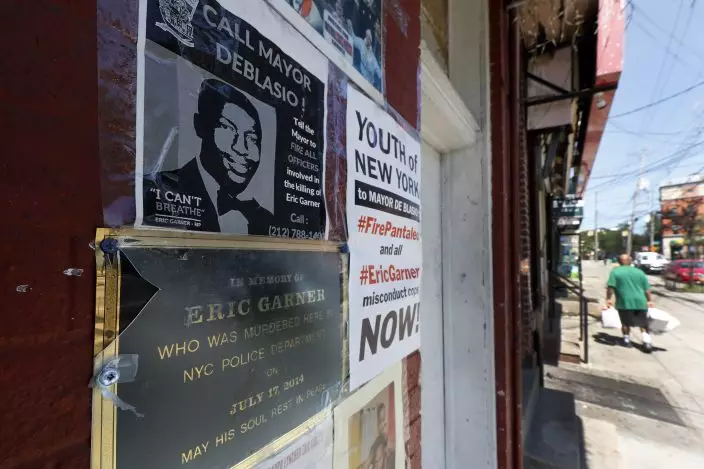
A make-shift memorial to Eric Garner is affixed to a building wall, Tuesday, Aug. 20, 2019, where he died in a police chokehold five years ago, in the Staten Island borough of New York. Police Commissioner James O'Neill announced Monday that he has fired Officer Daniel Pantaleo based on a recent recommendation of a department disciplinary judge. (AP PhotoRichard Drew)
Following a court ruling and a policy shift, the city dramatically reduced officers' use of stop and frisk, a practice in which officers stop people on the streets and search them for weapons. In 2011, the NYPD reported 685,724 such stops. Last year, there were about 11,000.
"That has led to hundreds of thousands of fewer police-civilian encounters, each of which has the potential to escalate into something like what happened to Eric Garner," said Christopher Dunn, a lawyer with the New York Civil Liberties Union.
Mayor Bill de Blasio said his priority for the department is to ensure something like Garner's death never happens again.
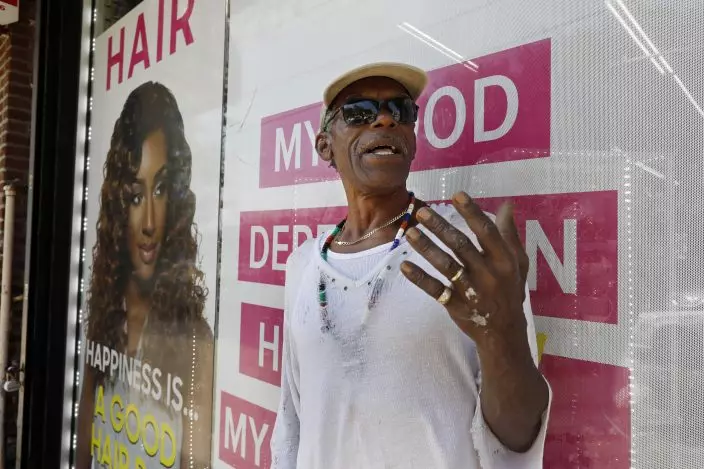
Doug Brinson talks about Eric Garner Tuesday, Aug. 20, 2019, where he died in a police chokehold five years ago, in the Staten Island borough of New York. After five years of investigations and protests, the New York City Police Department on Monday fired Officer Daniel Pantaleo, who was involved in the 2014 chokehold death of Garner, the black man whose dying gasps of "I can't breathe" gave voice to a national debate over race and police use of force. (AP PhotoRichard Drew)
"The NYPD of today is a different institution than it was just a few years ago," de Blasio said Monday after the department fired Pantaleo.
"I know the NYPD has changed profoundly. I know that members of the NYPD learned the lessons of this tragedy. They acted on it, they did something about it. It is a beginning, but we have a lot more to do, and the change has to get deeper and deeper. And that is not a top-down enterprise - that is for all of us to do."
In his reaction to Pantaleo's firing, the head of the city's main police union noted a retreat some Staten Island residents say they're already seeing.
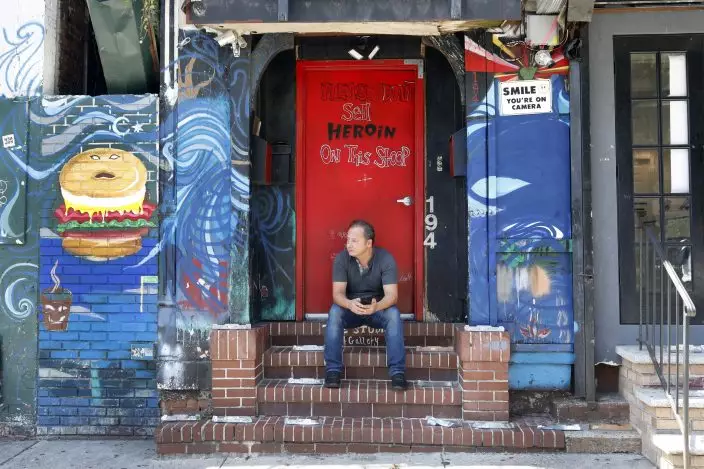
A man sits on steps, in front of a door inscribed "Please Don't Sell Heroin On This Stoop," Tuesday, Aug. 20, 2019, adjacent to the location where Eric Garner died form a police chokehold five years ago, in the Staten Island borough of New York. The New York City Police Department on Monday fired Officer Daniel Pantaleo, involved in the 2014 chokehold death of Garner, the black man whose dying gasps of "I can't breathe" gave voice to a national debate over race and police use of force. (AP PhotoRichard Drew)
"Right now, nothing's really getting enforced," said Pat Lynch, the head of the Police Benevolent Association. "What's happening is, the public calls 911 and we respond. Quality-of-life issues are not being enforced. If it is enforced, the district attorneys' offices are throwing them out and downgrading them. The message is clear: Don't go out and do your job."
In the years since Garner's death, use-of-force complaints against the NYPD have fallen sharply, according to data compiled by the city's Civilian Complaint Review Board. In 2014, there were 2,412. In 2018, there were 1,752, marking a 27% drop.
A study released in February showed the NYPD had been sued for misconduct 10,656 times in the last five years and paid $361.5 million in settlements. The city paid Garner's family $5.9 million in 2015 to settle a wrongful death claim.
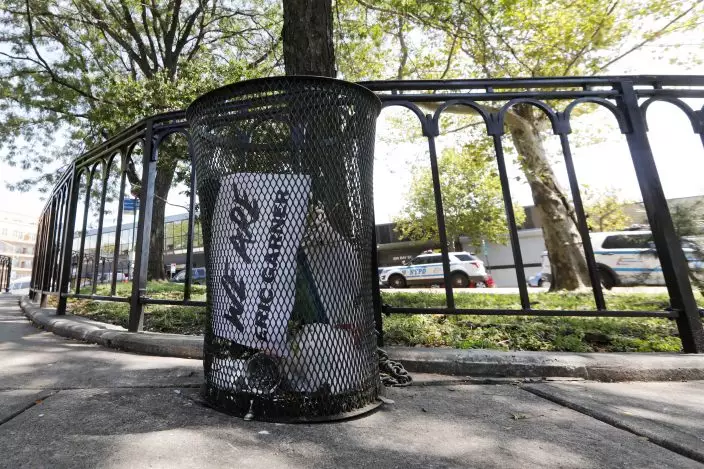
Two New York City Police Dept. vehicles pass Tompkinsville Park, in the Staten Island borough of New York, Tuesday, Aug. 20, 2019, where a garbage can holds a discarded "We Are Eric Garner" poster. After five years of investigations and protests, the New York City Police Department on Monday fired Officer Daniel Pantaleo, involved in the 2014 chokehold death of Garner, the black man whose dying gasps of "I can't breathe" gave voice to a national debate over race and police use of force. (AP PhotoRichard Drew)
O'Neill, who ascended to the post in 2016, led the department's shift from the "broken windows" theory of policing, embraced by his predecessor Bill Bratton, that viewed low-level offenses such as selling loose cigarettes and jumping subway turnstiles as a gateway to bigger crimes.
O'Neill, who was the department's chief of patrol at the time of Garner's death, implemented a neighborhood policing model as commissioner that is designed to give patrol officers more time to walk around and interact with people in the communities they police rather than staying in their cars and responding only to 911 calls.
But critics say that broken windows hasn't gone away, and that officers are finding new low-level targets, such as immigrant delivery people who get around on electric bikes. And while the use of stop and frisk has dropped significantly, statistics show the same racial disparities exist.
Since Garner's death, the police department has also gotten cagier about officer discipline and hasn't always provided the public with the names of officers involved in shootings, critics say.
"They've gone backward, and we would argue that in some cases especially around police transparency they've gone backward by decades, said Joo-Hyun Kang, the director of Communities United for Police Reform.
The NYPD has retreated in recent years from disclosing punishment details in most disciplinary cases, citing a state law that keeps personnel records secret. O'Neill has said he supports changing the law. The union opposes changes.
Associated Press video journalist David R. Martin contributed to this report.



